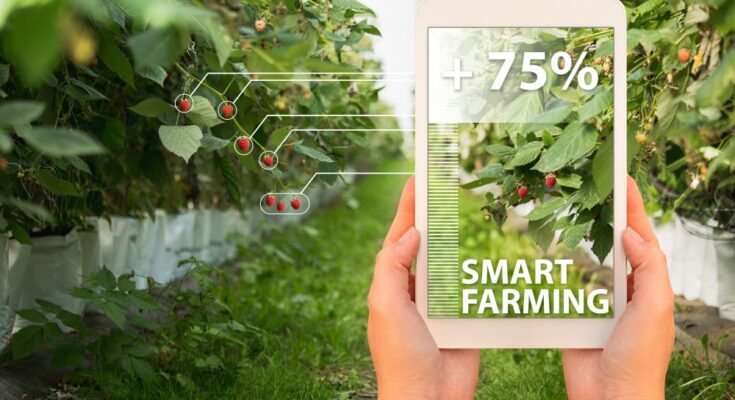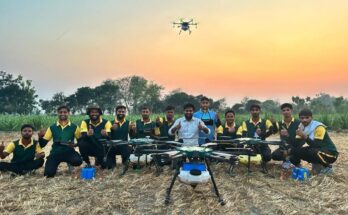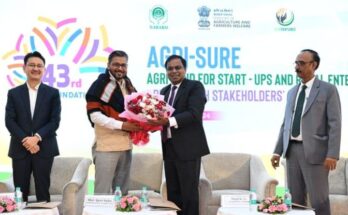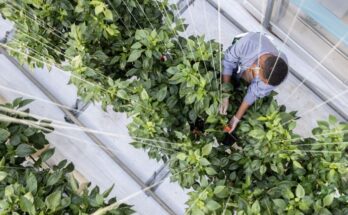Rome: The equity and efficiency of the world’s agri-food systems could benefit enormously from digital technologies, and making sure that happens requires coordinated and inclusive promotion of innovative techniques and a balanced policy framework to mitigate risks and assure that nobody is left behind, a high-level dialogue hosted by the Food and Agriculture Organization of the United Nations heard today.
“The digital divide is nowhere more evident than in agriculture,” FAO Director-General QU Dongyu said at the dialogue.
The impacts of digital technologies on agriculture are vast and transformative, affecting on-farm actions, research and development, markets, the environment and consumers, Qu said. They also “entail risks and challenges,” in particular smallholder farmers’ concerns about data ownership, privacy and liability, as well as serious potential impacts on labour markets, he added.
“More work is needed to address these concerns collectively without undermining innovation and technological progress”, which will require “enhanced collaboration and consensus among all stakeholders including governments, the private sector and the farmers themselves,” Qu said.
The Director-General spoke at the High-Level Dialogue on the Establishment of the International Platform for Digital Food and Agriculture, an online event FAO hosted to discuss the digital world’s opportunities for agri-food systems with policy makers, farmers’ representatives, academic researchers, business managers and technology companies.
FAO, at the request of its member countries, is setting up the International Platform for Digital Food and Agriculture, a flexible, light and consensual coordination mechanism with voluntary participation. It aims to provide an inclusive, multi-stakeholder forum for identifying and sharing ways the world’s food and agricultural sectors can harness digital tools ranging from e-commerce and blockchain transaction ledgers to the use of Artificial Intelligence (AI) for improved pest control and crop genetics, as well as tools allowing optimised management of natural resources and early warning of food security threats.
Algorithmic tools using Artificial Intelligence should be guided by human rights and animal health principles as well as considerations regarding the environment, biodiversity and food safety, said the Director-General, who is a co-signatory of the Vatican-sponsored “Rome Call for AI Ethics” supported by Pope Francis.
High-Level Panel
Today’s event featured a keynote speech from Nikolai Astrup, Norway’s Minister of Regional Policies and Modernization and a member of the United Nations Secretary General’s High-Level Panel for Digital Cooperation. An ensuing panel discussion included Atsuko Okuda, the International Telecommunication Union‘s (ITU) Regional Director for Asia and the Pacific; Rikin Gandhi, Co-Founder and Executive Director, Digital Green; Hendrik F. Hamann Chief Scientist for Geoinformatics and AI Applications, International Business Machines (IBM); Vineet Durani, Director, Agri-Food Industry, Azure Global, Microsoft Corporation; Arianna Giuliodori, Secretary-General, World Farmers Organization (WFO) and Véronique Bellon-Maurel, Director, Digital Agriculture Convergence Lab (INRAE).
“We won’t reach the 2030 Sustainable Development Goals (SDGs) without making use of digital technologies,” said Astrup, adding that it is essential to build trust in such solutions and “to make them available and affordable for all to use.” He emphasised that the Platform offered a promising venue to prepare for the UN 2021 Food Systems Summit.
Okuda stressed the importance of “meaningful and inclusive” accessibility to digital infrastructures and technologies, adding that they offered promising backbones for the building of “smart cities, smart villages and smart islands”.
Durani offered a sharp look at hardware issues, noting that the digital divide can be substantial even in developed countries as well and emphasising that “ground truth data” – often coming from farmers themselves – will be essential for effective agricultural applications.
Hamann said that IBM is eager to contribute to the Platform, noting that agricultural sectors actually entail “mega data” rather than merely “big data” while emphasising that digital technologies in food and agriculture would have particularly profound effects as they would catalyse optimisation of assets and resources between different users.
The Platform
The International Platform for Digital Food and Agriculture was conceived in early 2019 when 74 Agriculture Ministers and high-level representatives from international organisations called on FAO to develop the idea at the occasion of the Global Forum for Food and Agriculture (GFFA).
To develop the concept note, FAO leveraged the insights of participants in the Global Forum on Food Security and Nutrition and the 18,000 members of FAO’s e-Agriculture Community of Practice as well as multilateral institutions including the African Development Bank, the International Fund for Agricultural Development, the International Telecommunications Union, the Organisation for Economic Cooperation and Development, the Technical Center for Agricultural and Rural Cooperation (CTA), the World Bank, the World Food Programme, World Organisation for Animal Health (OIE) and the World Trade Organization.
FAO has long been active in the area of digital agriculture and has developed innovative apps to help combat invasive crop-eating insects and to facilitate universal access to sophisticated geospatial data with the EarthMap and OpenForis tools. FAO also has a Digital Services Portfolio offering information and advisory messages to tens of thousands of farmers, which as the Director-General told Members this week is now active in Egypt, Rwanda and Senegal with more countries soon to join.
The Platform’s goal is to maximise the potential for all from innovation while channelling governance and human capital efforts to minimise attendant risks, said FAO’s Chief Economist, Maximo Torero. It will also provide an opportunity to craft policy on the base of best practices that emerge in the fast-moving field.
“We want countries to leapfrog, to learn from the mistakes of others. Digital technologies if managed and used properly can make us equal and that is what we are aiming for with this platform” he said.
The COVID-19 pandemic has shown – and accelerated – how deeply intertwined the world’s societies are today, and how “we need more connectivity, not less,” the Director-General said. “Let us work hand in hand to ensure that this tremendous digital power is used to transform agri-food systems in order to eliminate hunger, reduce poverty and build a happy future for all human beings.”




